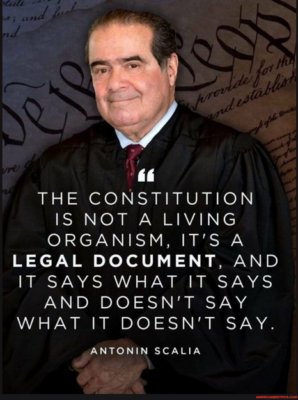On the Fourth of July we celebrate the day upon which the members of the Continental Congress signed The Declaration of Independence. In fact, independence in New Hampshire began six months earlier January 5, 1776, when our Legislature issued our first Constitution, thus creating the first independent State, established by a written Constitution, and without a king, in which the people ruled through their elected Representatives.
 Dan Itse
Dan Itse
What Makes a Good NHGOP Chairman?
I was sitting with Secretary of State William Gardner yesterday discussing the 2018 election. He is very concerned with manner in which the Democrats fought this last election. They created Political Action Committees (PAC) upon PACs, designed to obscure the source of the money, most of which was from out of State. They began their … Read more
Of Martial Law
Before I begin my discourses on Locke and constitutional government my wife suggested that I needed to write on the definitions of two terms: martial law and militia. I am going to discuss martial law first.
Currently, my wife and I are reading an “apocalyptic” book which deals with life after an electromagnetic pulse (EMP) takes out the power grid. I read many series of such books to my son Jarrod in the last years of his life. Through out this genre of books there is a consistent misunderstanding of marital law. Provisions for martial law are included in our State Constitutions, and has definite meaning. The martial law is a lawful power of government, and proper understanding of it and its lawful implementation is important.
“The design and intent of our government” – A Series
Following is a communication to some of my fellows in the General Court (Legislature) of the State of New Hampshire. For those of you who don’t know me, I have spent the last eighteen years in the Legislature. Most of my time has been spent on the Committee on Children and Family Law, because I see it as the quintessential liberty Committee. If you understand that the concept a man’s home is his castle is a fundamental doctrine of common law, realize that every issue that committee deals with broaches the castle walls. The only term that I was not on Children and Family Law, I was Chairman of the Committee on Constitutional Review and Statutory Recodification. In 2006, after my arguments were used to convince the Legislature to call itself into Session vis a vis defending its powers against encroachments by the Judiciary, I was convinced by my mentor in the Legislature to write a commentary on the Constitutions of the State of New Hampshire. I gained national attention for my Resolution, HCR6, “Affirming States Rights Based on Jeffersonian Principles”.
Today I find myself not running for office, in order to relocate and reorder our lives after the death of our youngest son. For the first time in 20 years there are no sign on the road side announcing my candidacy. So the question arises, what is my political activity for the next two years.
I have settled on a general plan.
Sales Tax in NH – A Constitutional & NH House take on S. Dakota vs Wayfair SCOTUS decision
Recently, the Supreme Court of the United States (SCOTUS) handed down an opinion in the South Dakota versus Wayfair (SD v Wayfair). The South Dakota Legislature had passed a law that enabled South Dakota to go after taxes on purchases citizens had made from Wayfair. The S. D. Supreme Court held that the law was unconstitutional, and it was appealed to SCOTUS. Previously, SCOTUS had held the opinion that no taxes could be collected if the retailer had no substantial physical presence in the State seeking the tax revenue.
Parallel to this an organization has grown up.
